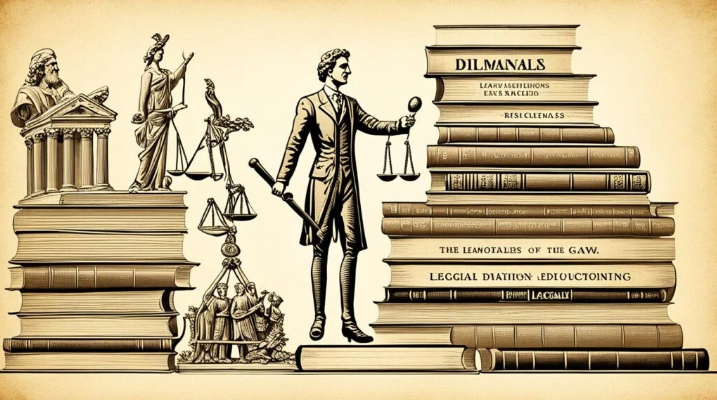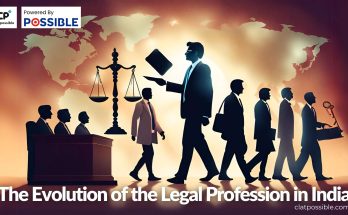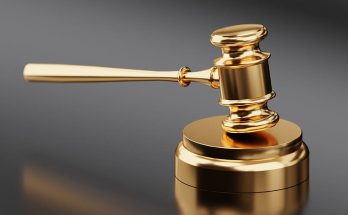Introduction
The Evolution of Attorney Practices Over Time, The lawful calling has developed essentially over hundreds of years, adjusting to cultural changes, innovative headways, and moving legitimate necessities. Lawyers today work in a boundlessly unique scene from their ancestors, confronting new difficulties and potential open doors that have reshaped how they specialize in legal matters. This article investigates the verifiable advancement of lawyer rehearses, significant effects on the calling, and arising patterns that keep on rethinking the job of lawyers in the public arena.
Early Starting points of the Legitimate Profession
The historical backdrop of the lawful calling goes back millennia, with establishes in old human advancements like Greece, Rome, and China. Early attorneys acted fundamentally as consultants and promoters, assisting people with exploring the intricacies of early overall sets of laws. The Evolution of Attorney Practices Over Time.
- Old Greece and Rome: In antiquated Greece, people frequently addressed themselves in court, however legitimate promoters existed to give direction and backing. In Rome, in any case, the legitimate calling turned out to be more organized, with legal advisors assuming an essential part in supporting for clients under the watchful eye of justices and judges. Roman backers were profoundly regarded and held broad information on legitimate codes, making way for the formal lawful practices seen today.
- Archaic Europe: The Medieval times denoted a time of change, with the congregation intensely impacting lawful issues. Religious courts administered numerous parts of day to day existence, and pastorate frequently filled in as lawful agents. By the late Medieval times, common legitimate practices reappeared, and colleges started formalizing legitimate schooling, giving organized preparing to future attorneys. The Evolution of Attorney Practices Over Time.
The Formalization of Lawful Practices in the Cutting edge Era
The seventeenth and eighteenth hundreds of years saw the foundation of bar affiliations and normalized lawful preparation, which formalized the calling in Europe and North America. This period denoted a shift toward a controlled lawful field with explicit capabilities, tests, and moral norms.
1. Development of Bar Affiliations and Lawful Education
As the interest for proficient legitimate portrayal developed, bar affiliations arose to lay out guidelines for lawyers and safeguard the public interest. These associations assumed a key part in setting moral rules, permitting prerequisites, and instructive benchmarks.
- Bar Associations: In Britain, the Motels of Court became unmistakable establishments that gave preparing hoping for legal counselors. Essentially, the American Bar Affiliation (ABA), established in 1878, expected to make a bound together set of principles and upgrade the standing of the legitimate calling.
- Legitimate Education: Graduate schools started to supplant apprenticeships as the essential method for preparing attorneys, stressing a conventional educational plan that covered primary lawful standards. By the late nineteenth hundred years, regulation degrees were generally perceived as fundamental accreditations for rehearsing lawyers.
2. Changes in Lawyer Jobs and Responsibilities
The nineteenth and twentieth hundreds of years carried massive changes to the legitimate field, as lawyers accepted more specific jobs because of developing legitimate requests. The ascent of industrialization, urbanization, and expanded guideline made complex lawful necessities that expected particular information and ability.
- Corporate Regulation and Industrialization: The modern transformation prodded an interest for corporate legal counselors who could explore issues connected with work, contracts, licensed innovation, and trade. This specialization permitted lawyers to zero in on unambiguous areas of regulation, laying the preparation for training regions like corporate regulation, work regulation, and duty regulation.
- Social liberties and Social Justice: The lawful calling likewise assumed an essential part in social equality developments, with lawyers pushing for civil rights, equivalent freedoms, and official changes. Legal advisors supported causes like social equality, ladies’ testimonial, and work privileges, having an enduring effect on the general set of laws and society.
Mechanical Progressions in the Lawful Profession
In late many years, mechanical development has changed the act of regulation, improving effectiveness, openness, and the nature of lawful administrations. Lawyers today influence advanced instruments for research, correspondence, case the executives, and client collaborations.
1. The Effect of the Web and Computerized Exploration Tools
The web reformed legitimate examination, permitting lawyers to get to case regulation, rules, and lawful critique immediately. Advanced information bases and examination stages, for example, Westlaw and LexisNexis empower lawyers to lead intensive exploration more proficiently than any other time.
- Online Lawful Databases: These data sets offer a far reaching library of legitimate data, smoothing out the exploration interaction and giving admittance to an abundance of legitimate information. Lawyers can now find points of reference and case regulation in minutes as opposed to hours or days.
- Virtual Regulation Libraries: Numerous law offices and legitimate divisions presently work virtual libraries, diminishing the requirement for actual space while permitting lawyers to get to lawful messages, diaries, and reference materials from a distance.
2. Case The board Programming and Automation
Case the board programming has altered how lawyers handle caseloads, cutoff times, and client data. Computerization instruments smooth out regulatory assignments, permitting lawyers to zero in on essential case viewpoints as opposed to tedious errands.
- Report The executives and Automation: Computerized record age and advanced recording frameworks assist lawyers with drafting, store, and arrange authoritative archives proficiently. These devices lessen human blunder and further develop precision in lawful documentation.
- Client Communication: Computerized stages permit lawyers to speak with clients safely and effectively, working with quicker reactions and better commitment. Email, video conferencing, and client entries have become fundamental devices for current regulation practices.
3. The Ascent of Remote and Virtual Regulation Practices
The Coronavirus pandemic sped up the reception of remote work in the legitimate calling, showing the way that numerous lawful administrations can be given practically without compromising quality. Thus, virtual law offices and distant meetings are turning out to be more normal, offering adaptable and financially savvy choices for clients.
- Virtual Regulation Firms: These organizations work completely web based, permitting lawyers to serve clients across geographic limits. This model gives adaptability to the two clients and lawyers, frequently decreasing above expenses and making legitimate administrations more available.
- Remote Trials and Depositions: Virtual hearings, which became boundless during the pandemic, are probably going to stay a practical choice for particular sorts of cases. Distant testimonies and hearings save time and assets, especially for clients and witnesses who may somehow or another need to travel.
Latest things and the Eventual fate of Lawyer Practices
The fate of lawyer rehearses keeps on being formed by arising advancements, cultural changes, and developing client assumptions. Key patterns affecting the legitimate calling today include:
1. Lawful Innovation and Man-made reasoning (AI)
Computer based intelligence can possibly alter the legitimate business by smoothing out research, archive audit, and prescient examination. Lawyers can utilize man-made intelligence to rapidly survey enormous volumes of information, break down case drifts, and give bits of knowledge that improve navigation.
- Man-made intelligence in Archive Review: man-made intelligence fueled programming can audit contracts, authoritative records, and case documents quicker and more precisely than customary strategies, essentially diminishing expenses and time.
- Prescient Analytics: By dissecting previous cases and court choices, simulated intelligence instruments can assist lawyers with anticipating case results, empowering them to pursue more educated choices and foster compelling systems for clients.
2. Expanded Spotlight on Lawful Morals and Admittance to Justice
As lawful innovation develops, so does the accentuation on moral practices and fair admittance to legitimate portrayal. Lawyers are progressively called upon to maintain high moral principles, particularly in regions like information security, client privacy, and admittance to equity.
- Information Protection and Security: Lawyers handle delicate client data and are liable for carrying out information security conventions to safeguard private data.
- Free Services: The lawful local area is additionally focusing on admittance to equity, with numerous lawyers offering free administrations to underserved populaces, guaranteeing that people from all foundations can get legitimate help.
3. Extending Specializations and Modern Roles
Lawyers are venturing into contemporary jobs, for example, legitimate experts, consistence officials, and innovation guides, mirroring the rising cross-over among regulation and different businesses. Specializations like online protection regulation, ecological regulation, and medical services regulation are filling because of new administrative and cultural requests.
- Consistence and Administrative Consulting: As enterprises face more complicated guidelines, lawyers with consistence mastery are pursued to prompt on legitimate dangers and guarantee administrative adherence.
- Interdisciplinary Lawful Roles: Lawyers presently work close by experts in fields like innovation, money, and medical services, giving legitimate direction on issues that influence various areas.
Conclusion
The development of lawyer rehearses mirrors a powerful calling that adjusts to the necessities of society, embraces innovation, and keeps on maintaining exclusive requirements of administration. From the starting points of promotion in antiquated civilizations to the cutting edge, innovation driven lawful acts of today, lawyers remain es



